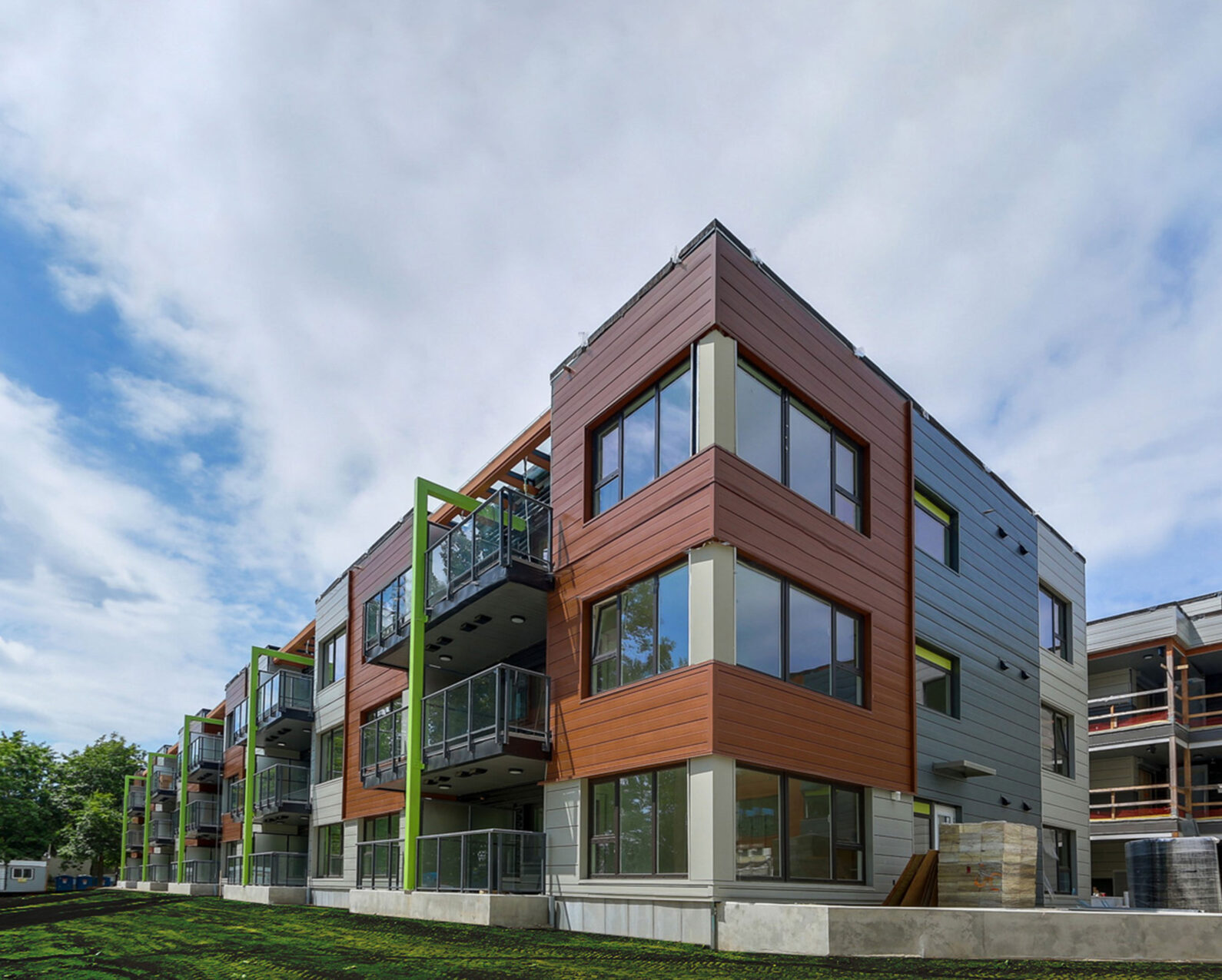
There’s a whole new era of co-op housing dawning in British Columbia. This new focus on non-profit co-operative housing provides a unique opportunity to be part of a strong community where all members have a voice, security of tenure, and fair monthly housing charges.
Community Land Trust is actively developing new co-operative housing, with the support of a multitude of contributing partners, such as the Vancouver Affordable Housing Agency, and the Co-op Housing Federation of BC (CHF BC). New co-operatives supply housing opportunities to a broad mix of middle to lower income households, offering diverse and inclusive communities to call home.
Co-op Then and Now
There is an important distinction to be made between legacy co-ops and the new co-op. Legacy co-ops were built between 1969 and 1992 in BC, and subsidized by federal and provincial funding. After this period, the federal government stopped contributing to co-op housing. Without their funding, the province experienced a shortage of co-op housing for the next two decades.
It wasn’t until 2012 that the next co-op arrived in Vancouver: Athletes Village Co-operative.
But the model itself hasn’t really changed, explains Jeannine O’Hara, a loyal co-operator who has lived and worked in the co-op sector her entire life. In fact, her mother is an original member of Vancouver’s very first co-op – and still lives there today. Jeannine now resides in a similar co-op down the street, and her work with Coho Management helps ensure the seamless management and maintenance of new and existing housing co-ops across BC.
“The co-op concept is still the same: you are a shareholding member with democratic control – voting rights and a voice in matters that impact you,” says Jeannine.
“What has changed is that new co-ops are no longer solely dependent on deferral and provincial funding. They are now self-sufficient with strategic partnerships.”
The model for co-op housing is also shifting, with trends towards contracting professional management in lieu of volunteer management for regular tasks like property maintenance.
For new co-ops, incoming residents qualify for homes for which they pay 30% or less of their gross income, a broadly regarded standard for affordability. While every project is different, many new co-op homes are targeted for people with household incomes between $80,000 and $110,000. With homes offered below third-party appraised rates for similar accommodations, the new co-ops are designed to target the “missing middle.” It is a smaller segment of the market, but still a pressing need. At the moment, there are only a handful of Community Land Trust co-ops in BC, and over 260 legacy co-ops.
The Co-op Community
Below market monthly housing charges are just one of the benefits of co-op housing, says Jeannine. For starters, you also have security of tenure. “If you observe the agreements, you can live there as long as you want,” says Jeannine. “That sense of control is an important feature to a lot of people.” In a housing market where renoviction and demo for redevelopments are an all-too-common reality, the co-operative model provides a much-desired solution.
Most importantly, co-op housing offers an incredible sense of community. “Deep friendships and connections are built in co-ops, and they span generations,” says Jeannine. “Everyone looks out for each other’s home, kids and pets. We garden together; we take care of our community.”
“In our co-op,” she continues, “we had a program where our teenagers grew vegetables and delivered them to our lower-income seniors. We also hold an afternoon tea to bring seniors out and help ensure they aren’t isolated.”
And there’s social responsibility here, too. Community Land Trust partners with Community Living Society of BC and the BC Society of Transition Houses to provide homes for their clients: adults with developmental disabilities, and women and children fleeing violence. They also administer a Domestic Violence Relief Fund and a Disability Trust to provide financial assistance to those in need.
“You have to pay rent somewhere,” says Jeannine. “And when you support the Community Land Trust co-ops, you’re supporting these important causes. Just by waking up in the morning in your co-op, you’ve already done a good deed.”
Past Volumes

Volume 35
Summer 2022
Click below to read

Volume 34
Winter 2021
Click below to read

Volume 33
Summer 2021
Click below to read

Volume 32
Winter 2020
Click below to read